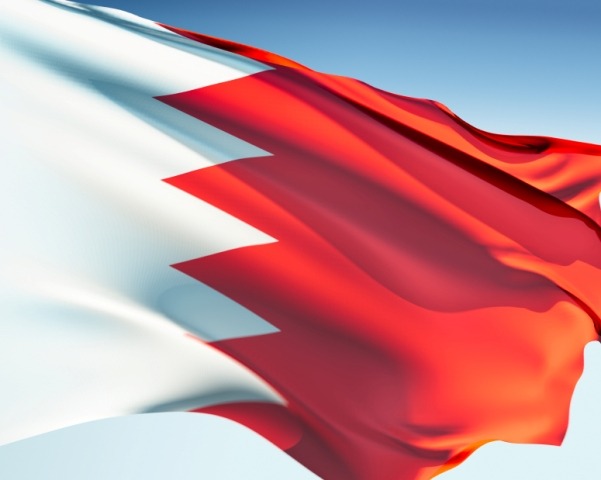On 6th September 2010 IHRC appealed to the UN Special Rapporteur on Torture, [1] Manfred Nowak, demanding that he investigate allegations of maltreatment by security forces against opposition figures, human rights activists and religious leaders who have all been targeted in Bahrain and reportedly subjected to severe forms of torture and degrading treatment whilst being held incommunicado, for over a fortnight in some instances. Amnesty International [2] and Human Rights Watch[3] have also called upon the Bahrain authorities to investigate allegations of torture.
Bahrain’s draconian 2006 anti-terrorism legislation [4], under which over 250 activists have been detained, has been criticised by international lawyers as excessively vague and international human rights organisations have argued that the statute was purposefully enacted to legitimise cyclical government repression against activists seeking democratic reform and the protection of human rights, whilst circumventing Bahrain’s international legal obligations as a party to the ICCPR and UNCAT.
Elections
The National Assembly was initially created in 1973 by the al-Khalifa government pro forma to placate those Bahraini’s calling for greater representation and influence upon the decision making process. The elections have contemporarily come to serve as a rallying call for oppositional movements to unite and express their collective dissatisfaction with the ruling family, and the most recent elections in 2006 saw the Shia al-Wefaq party take 14 of the 40 seats in the lower house.
The recent crackdown is indicative of the extent to which the government is apprehensive about the possible results of the upcoming elections, which may see the Shia majority gain seats in the lower legislative house. Bahraini constituencies and voting districts currently favour Sunni candidates resulting in a disproportionately low number of Shia representatives in the elected Chamber of Deputies.
Increasing activism and demonstrations over the past decade by Shia activists have been identified as a challenge to the power of the ruling al-Khalifa family, despite the fact that the lower elected house is comprehensively restricted by the legislative authority of the upper chamber, which is unelected and members of whom are appointed by King Hamad.
Human rights
The Bahraini authorities continue to violate international law and domestic Bahraini statutes which prohibit the violation of human rights including the use of torture, the degrading and humiliating treatment of detainees and the violation of civil and political rights including those of protest, association and the legal dissemination of information. These violations have increased in number and intensity with hundreds of activists arrested since the middle of August 2010 as part of a wider strategy to intimidate and prevent them from political activity ahead of forthcoming elections.
Two prominent instances of severe maltreatment are the cases of British national Jafar Al Hisabi and Dr. Abduljalil Al-Singace [5], Chairman of the Human Rights Committee of the Haq Movement who was arrested on 13th August as he returned to Bahrain from the UK after addressing a meeting at the House of Lords. Both men, and numerous other activists detained recently, allege that authorities subjected them to torture, including severe beatings, and psychological abuse.
The government has also restricted the media functions[6] of two of Bahrain’s largest political societies, Al-Wefaq and NDAS, along with many other civil society and political groups, even bloggers. [7] The fact that a political media blackout has been enforced shortly before a national election is concerning in light of the reliance such organisations place on newsletters, websites and other paraphernalia to provide information for voters.
Underlying causes of unrest
Recent tensions ahead of the 23rd October elections are the latest episode in an historic struggle between the ruling al-Khalifa family and Bahrain’s civil society activists and political opposition. The Bahraini government has been accused of adopting sectarian policies that seek to exclude the majority Shia population from social, economic and political spheres of influence within the country. Inadequate housing, inequitable wealth distribution, high rates of unemployment, poor public services and political exclusion are the policy areas which will ultimately need to be resolved, and the myopic predilection of the current government towards violent repression is highly unlikely to alter the wider and more deeply rooted socio-economic and political dissatisfaction amongst the majority of Bahrainis and their consequent struggle for human rights and democratic representation.
Please search the IHRC website for other material on Bahrain. IHRC’s latest report on Bahrain, Broken: Promises: Human Rights, Constitutionalism and Socio-economic Exclusion in Bahrain by Omar F. Ahmed is published on 30th September 2010. For more information visit the Report page. [8]
END NOTES:
[1] PRESS RELEASE: BAHRAIN: IHRC refers treatment of activists to UN Special Rapporteur on Torture.
[2] Amnesty: Bahrain: allegations of torture and ill-treatment must be independently investigated
[3] Bahrain: Pursue Torture Allegations
[4] Concern over Bahrain’s new anti terror bill
[5] Press Conference: Bahrain’s slide to the abyss and the need to defend its people
[6] To the International Community:Your Silence over Rising Repression in Bahrain Encourages Oppression & Fosters Political Violence
[7] Freedom House: Bahrain Crackdown Grows More Concerning
[8] FORTHCOMING: BROKEN PROMISES: Human Rights, Constitutionalism and Socio-economic Exclusion in Bahrain




